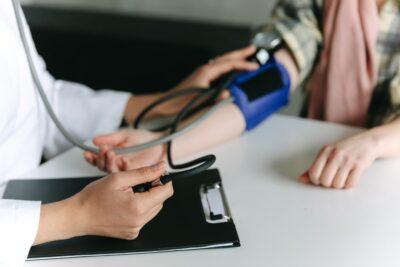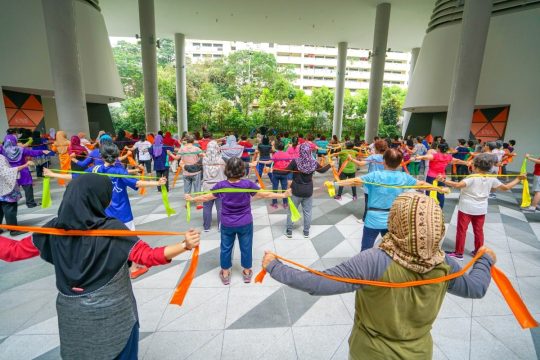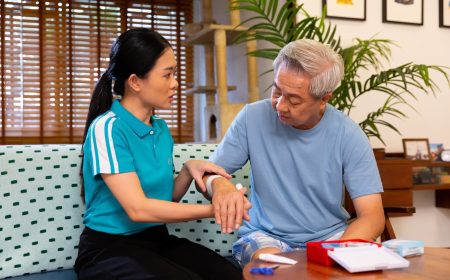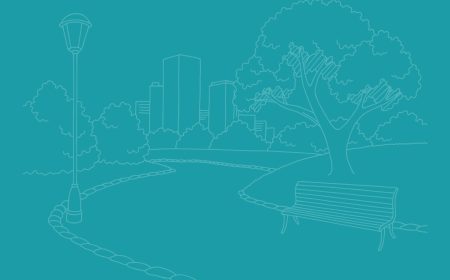Imagine this: you come home from a long week of work and your elderly parent is looking forward to having dinner with you. As dinner commences, he or she stops eating suddenly, complains about weakness in one side of their body, blurry vision, and a severe headache; symptoms of stroke are unfolding before your eyes.
You remember the F.A.S.T. test for stroke. Asking them to smile reveals a droopy face on one side; trying to raise both arms results in one arm dropping; their speech is slurred. You note the time as you recall that for stroke patients, every second counts.
Because strokes happen so suddenly and often without warning, stroke survivors and their families are sometimes caught unprepared for the resulting changes to their daily lives. Even as patients return home from the hospital to begin recovery at home, families may face the uncertainty of a recovery timeline, or feel unsure about how to handle post-stroke care at home.
Learn what you need to know about strokes, pick up some caregiver tips and find help with stroke recovery in Singapore by reading on!
Causes of Stroke and Risk Factors
Blood carries oxygen and important nutrients to your brain through your arteries. During a stroke, blood supply to the brain is interrupted. When your brain cells do not get enough oxygen or nutrients, they become damaged, resulting in symptoms such as blurred vision, pain, numbness in one side of the body and loss of functional abilities such as walking or speaking.
The main causes of stroke are often attributed to a person’s overall health and their lifestyle habits:

- High blood pressure
High-sodium diets, kidney disease and obesity are factors for long-term high blood pressure, which may cause an artery in the brain to rupture. When this happens, blood escapes into the tissue around the brain. This is a hemorrhagic stroke, also known as cerebral haemorrhage, and makes up about 20% of all strokes.
- High cholesterol
An unbalanced diet of large quantities of foods high in cholesterol such as fried chicken, bacon and hot dogs contributes to high cholesterol in the blood. When cholesterol builds up on the walls of blood vessels, it can form a sticky substance called plaque. Over time, this plaque grows in size and blocks blood flow to the brain, resulting in an ischaemic stroke.
- Smoking
Puffing on cigarettes increases your risk of stroke as tobacco use thickens blood, reduces oxygen saturation and puts you at higher chance of forming blood clots and narrowed arteries. In fact, smoking 20 cigarettes a day causes you to be six times more likely to have a stroke compared to a non-smoker.
- Diabetes
Having too much sugar in your blood, such as with diabetes patients, damages blood vessels by making them stiff, or clogging them with fatty deposits. This makes it difficult for blood to reach your brain and increases the risk of stroke.
While some risk factors can be controlled with changes to habits and lifestyle, there are other factors, such as old age and family history of stroke, that can also increase the likelihood of stroke. In addition to that, there are rare disorders of the blood or blood vessels, that may contribute to this risk too.
What To Expect After A Stroke
A stroke can be life-changing. You may find your loved one relying on you or caregivers more often as they experience post-stroke symptoms such as:
- Difficulty in speaking, feeding themselves or swallowing food
- Weakness, numbness or paralysis of their body muscles, making it difficult to complete daily tasks such as bathing, preparing a meal or moving about the house
- Changes in facial expressions or drooling
- Pain, tingling or burning sensations in the affected side of the body
- Problems with vision, blurriness
- Problems with balance and feeling unsteady
- Fatigue that does not improve with adequate rest
- Memory problems with a reduced attention span, or having trouble remembering specific dates or events that they would normally be able to recall without issue
- Difficulty understanding speech, reading or writing
- Mood swings, confusion, anxiety or an increase in emotional outbursts from frustration
- Urinary or bowel incontinence
As your loved one recovers from a stroke, it is important to maintain a proactive approach in helping them with their basic needs such as feeding, bathing and reminders for medication. By considering these changes in lifestyle and including plans for medical appointments, physiotherapy and rehabilitation on the caregiver’s list of tasks, you can ensure that your loved one receives the necessary care during the recovery process.
While every case of stroke is unique, it is always important to encourage your loved one to keep a positive mindset and provide the patience and support they need to achieve their rehabilitation goals.

9 Tips for Caregivers of Stroke Patients
- Understand the stroke recovery journey. Find out as
much as you can about the condition, medication, side effects and
recovery timeline from doctors, nurses and therapists. This includes
drawing up a plan to help your loved one attend medical appointments,
reminding them to take their medication regularly, and making sure they
go for their rehabilitation sessions.
- With the help of a rehabilitation team, find out if your home should be modified to meet the needs of a stroke survivor. Stroke
survivors may experience paralysis or weakness in some parts of their
body and are therefore prone to falls. Some modifications to the house
may be necessary to support them with moving about safely. This includes
preparing your home with anti-slip mats, grab rails and wider pathways
to accommodate assistive devices such as wheelchairs or walking aids. If
your home cannot be modified, consider enrolling your loved one in a care facility that has the infrastructure to support these changes.
- Pay attention to falls. Stroke survivors may not
have full control over their movements and may face difficulties with
their balance. They may require extra help in moving about especially if they
experience frequent falls. Inform your loved one’s medical team if falls
are frequent and bring him or her to emergency services at the hospital
if a fall results in fractures, bleeding or severe pain.
- Take steps to reduce the risk of a recurring or second stroke by making sure your loved one leads a healthy lifestyle. Encourage
them to follow a healthy diet of fresh vegetables, legumes and less
processed meat. Couple this with regular exercise where possible. These
measures help with controlling blood pressure, sugar levels and
cholesterol, thus reducing the risk of a second stroke. If your loved
one is a smoker, encourage them to stub out that habit.
- Keep your loved one active and on the road to regaining some
of their functional ability through the help of physiotherapists,
occupational therapists and speech therapists at a stroke rehabilitation centre. As
stroke affects functional abilities such as walking, speaking and
swallowing food, rehabilitation and physiotherapy can make a difference
in improving quality of life by retraining some abilities affected by
stroke.
- Motivate your loved one and provide support with a positive mindset. Caregivers
play an important part in encouraging stroke survivors through their
journey to wellness again. Patients recovering from stroke can
experience post-stroke depression (PSD). This can affect their recovery
as it decreases quality of life and motivation.
- Remain patient and monitor changes in attitude and behavior, such as a loved one having a hard time controlling emotions. Emotional
incontinence, such as uncontrollable episodes of crying, laughing or
anger, are known to be a result of injury to the brain. Consult a
healthcare provider to develop a plan of action and seek professional
help to manage these changes.
- Be prepared for the uncertainty of a recovery timeline. Stroke
recovery can be fast or may take a long time, depending on the severity
of the stroke and whether your loved one has other chronic health
conditions. Speak to the attending doctor and rehabilitation team to
check in on your loved one’s progress and be prepared to make
adjustments accordingly.
- Take time out for yourself. Even as you care for your loved one, it is important not to forget your own health and well-being. By seeking respite care solutions such as home care, day care and other options, you can prevent caregiver burnout and return to caregiver duties later with a fresh mind and body.
Get in touch with us
Give your loved one the best chance at stroke recovery with professional and dedicated care services.
Learn more about NTUC Health’s Home Care, Senior Day Care, physiotherapy and rehabilitation and residential care services.

